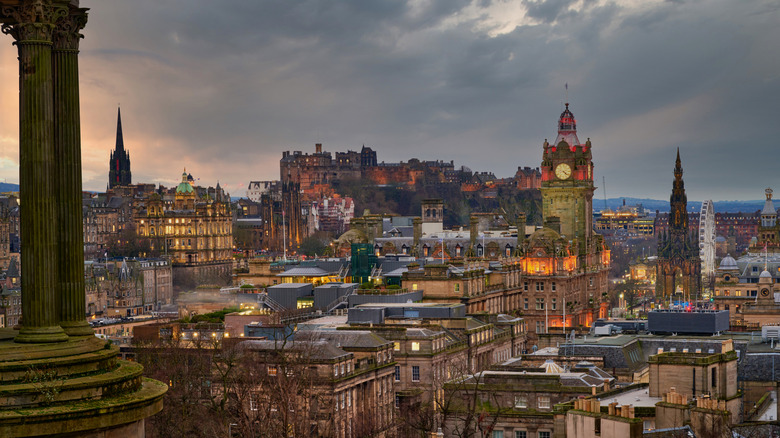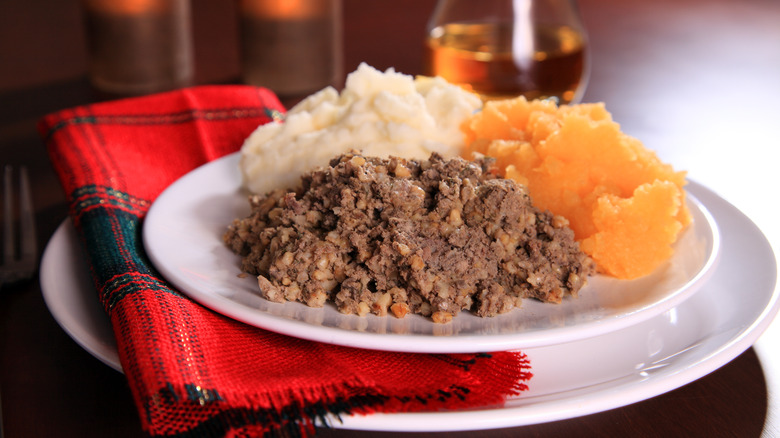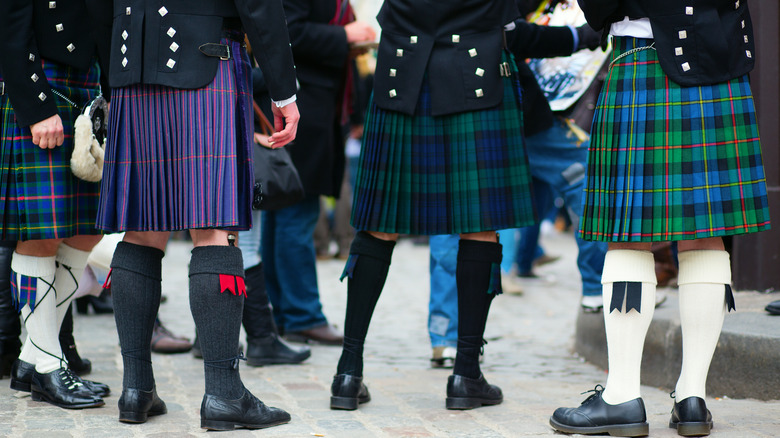This Friendly Social Etiquette In Scotland Sets It Apart From The Rest Of Europe
Think of Scotland, and you may conjure up images of a certain amber liquid, hairy Highland cows, and postcard-worthy landscapes of mountains, lochs, and glens. But think of the Scots themselves and you'd be right in picturing a warm, friendly people who are quick to smile, happy to lend a hand, and always ready with a dollop of craic (in other words, lively conversation with a touch of dry humour). Scots are known for their politeness and are especially appreciative when others return the gesture. A simple "please" or "thank you" delivered with a friendly smile costs nothing and goes a long way towards what kind of welcome you'll receive. Often featured in lists of the friendliest places in Europe, Scotland's charm is reflected in both its scenery and its people. But what exactly makes Scottish social etiquette so appealing to visitors?
Much like a wee dram of whiskey warms the bones in a harsh Scottish winter, the warmth and welcome of a Scot is equally appreciated –- as long as you show kindness and respect in return, because if there's one thing Scots can't abide, it's rudeness. Be careful not to make these mistakes that may offend the locals. Whereas it may be acceptable to roll up fashionably late in some parts of southern Europe, in Scotland, lateness isn't tolerated and is considered impolite. And even if queues may be less formal in other European countries, here you should wait in turn with no pushing in.
Scottish customs every traveller should know
Showing some knowledge of the country you're visiting is always appreciated in Scotland. If you're there on January 25th, you may find yourself caught up in Burns Night celebrations, dedicated to the life of the famous poet, Robert Burns. The national dish of haggis, neeps (turnips), and tatties (mashed potatoes) is served up and washed down with a wee dram of -– you guessed it –- whiskey. But don't assume haggis or porridge is all that's eaten. Scotland has a rich and varied food culture and takes pride in serving up delicious, locally grown or caught produce, including some mouth-watering seafood dishes.
Always up for a bit of celebrating, you can find ceilidhs (traditional music and dance) up and down the country at festivals throughout the year. Other special occasions are Hogmanay (December 31st), when "Auld Lang Syne" is sung across the country and beyond to welcome in the new year, and St Andrew's Day (November 30th), which honors the patron saint of Scotland. If you're new to driving in Scotland, don't forget to stay on the left, and if you go further north, be prepared to share the twisty, narrow roads with the odd sheep or Highland cow. If you're willing to brush up on a few local customs, research a bit of Scottish history, and don't leave your manners at home, you'll fit right in and feel at home in no time.
Regional differences you'll notice in Scotland
Although English is spoken throughout Scotland, you'll often see place names written in Scottish Gaelic. This language is still spoken, especially in the northern parts of Scotland and on the islands. Scots don't take kindly to anyone mocking their accents, which vary widely across the country. A Glasgow accent is completely different than one you'll hear in Edinburgh and may be more difficult to understand. But, impersonating the language will make locals cringe rather than laugh. One major blunder that's guaranteed to annoy Scots is referring to Scotland as part of England. The Scots are proud of their identity and take it seriously. One way they express their identity is with tartan. Many Scottish families, or clans, have their own tartan, and it's still worn at celebrations and special occasions such as weddings.
If the highlight of your trip to Scotland is a whiskey tour, you'll find that geography makes a big difference in flavor, and when enjoying a dram, it's customary to raise a glass and say "slainte mhath" (pronounced slanj-a-va) before taking a sip, which means "good health". If someone offers to buy you a whiskey in a pub, be sure to return the favor. Buying rounds is expected and part of the culture. No matter where you are in Scotland, expect the weather to change often. Yes, it does rain a lot, especially in the west, but sunshine does make an appearance from time to time. The best way to deal with snow, sun, and sudden downpours on the same day is to layer up and be prepared for anything.


